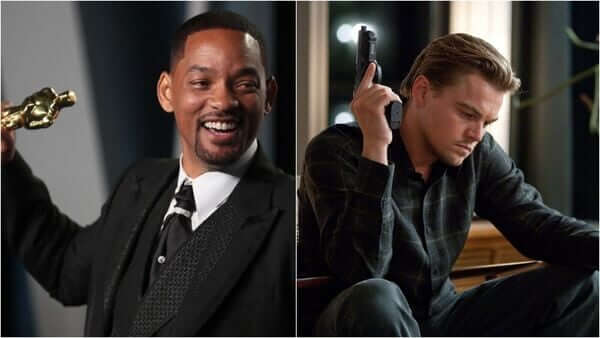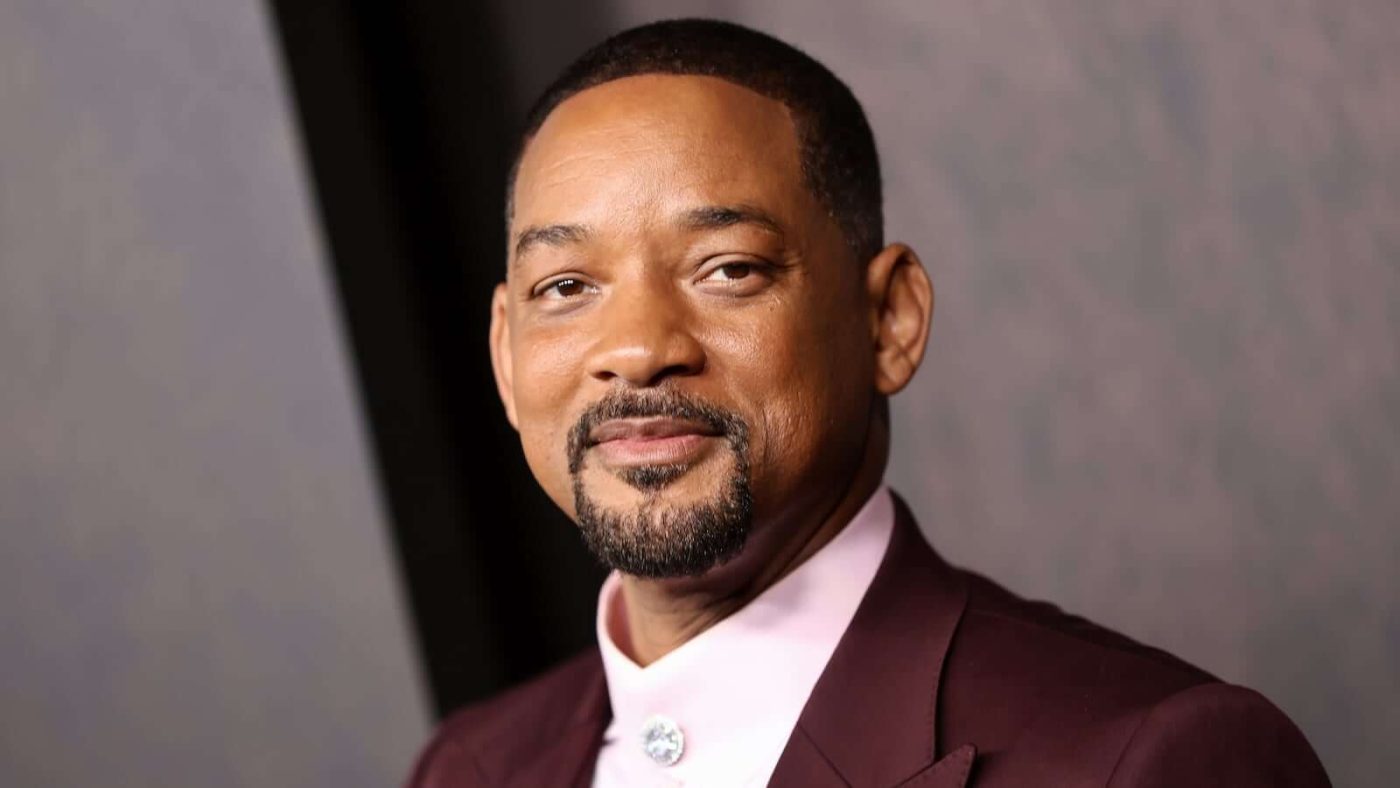No products in the cart.
World News
Will Smith’s Decision to Turn Down Inception: A Moment of Lost Opportunity?
Introduction: A Legendary Career and the Decision That Could Have Changed Everything
Will Smith has enjoyed one of the most successful and enduring careers in Hollywood. From his breakout role in The Fresh Prince of Bel-Air to his iconic action roles in Men in Black and Bad Boys, Smith’s career has been marked by both commercial success and critical acclaim. However, one of the most significant moments in his career came in the form of a decision: turning down a role in Christopher Nolan’s Inception (2010).
When Inception was being cast, director Christopher Nolan approached Will Smith with the opportunity to star in the film. However, Smith, who had built his career on action-packed blockbusters and more mainstream roles, turned it down, stating that he didn’t fully understand the complex, layered nature of the movie’s plot. This decision has since become a significant talking point in Hollywood circles, especially as Inception went on to become one of the most critically acclaimed and commercially successful films of the 21st century.
In this article, we will explore the context behind Will Smith’s decision, the reasons he turned down the role, the potential impact on his career, and the legacy of Inception in the years since.

The Origins of Inception: A Revolutionary Film Concept
Inception, released in 2010, was a groundbreaking film that captivated audiences with its high-concept storyline and mind-bending visuals. Directed by Christopher Nolan, Inception revolves around a group of thieves who infiltrate the minds of their targets through dream manipulation. The film combines heist elements with complex concepts of dreams, reality, and the subconscious, making it a unique and ambitious project that demanded an extraordinary level of conceptual understanding and storytelling.
When Nolan began developing the project, he had a specific vision in mind. He wanted a lead actor who could convey the gravitas of the film’s intricate emotional layers, as well as the physicality needed for the action sequences. Initially, he had approached Will Smith for the lead role of Dom Cobb, a skilled thief played by Leonardo DiCaprio in the final version of the film. Smith, who had previously worked with high-profile directors and action-heavy roles, was intrigued by the concept of the movie but ultimately struggled to understand the layers of complexity that Inception presented.
In an interview, Smith revealed that, at the time, he didn’t fully grasp the nature of the film’s script. He admitted that the intricate storylines involving dream manipulation and shifting realities were confusing to him, and as a result, he turned down the opportunity. This decision was undoubtedly influenced by Smith’s preference for more straightforward, action-driven roles that he was comfortable with.
Will Smith’s Career at the Time: A Different Direction
By the time Inception was being offered to Will Smith, he was already an established box office draw, known for his roles in films such as Independence Day, Men in Black, and The Pursuit of Happyness. His filmography had been a blend of science fiction, action, and family-friendly entertainment. While he had earned critical acclaim for his performances, especially in The Pursuit of Happyness, Smith was still very much entrenched in a particular style of filmmaking, often focused on mass-market appeal and larger-than-life characters.
Smith’s decision to turn down Inception can be understood in the context of his career at the time. He had found great success in films that offered clear-cut narratives and audiences that expected high-energy action or straightforward drama. Films like Bad Boys and I Am Legend were successful because they played to his strengths—Smith was a charismatic, relatable lead who could shine in action-heavy or emotional roles.
The abstract, intellectually challenging nature of Inception was a stark departure from the type of film Smith was used to. While he was open to exploring more serious dramatic roles, the film’s complexity was something he wasn’t sure he could handle. It is also important to note that Smith was not the only one who had difficulty understanding the full concept of the film at first; many in Hollywood were initially skeptical of the film’s high-concept script, as it was unlike anything audiences had seen before.
In hindsight, it is clear that Inception was a departure for Nolan, a director known for his cerebral storytelling, and for Smith, a leading man who was used to more accessible, mainstream narratives. For both of them, the decision to go in different directions was a calculated risk.

Christopher Nolan’s Vision for Inception and the Importance of Leonardo DiCaprio
While Will Smith ultimately passed on Inception, the role of Dom Cobb, the film’s protagonist, eventually went to Leonardo DiCaprio. DiCaprio’s casting was a critical choice that aligned perfectly with Nolan’s vision for the film. The film’s premise demanded a nuanced performance, and DiCaprio’s ability to convey deep emotional conflict and vulnerability was key to bringing the character of Cobb to life.
Christopher Nolan has often stated that the success of Inception relied heavily on the emotional undercurrents driving the plot. The central theme of the film is not just the concept of entering dreams, but also Cobb’s journey of dealing with guilt, loss, and redemption. DiCaprio’s portrayal of Cobb was essential in conveying these layers to the audience, and Nolan has explained that he knew DiCaprio was the right fit for the role due to his past performances in emotionally complex films like Shutter Island and The Aviator.
While many fans speculate on how Smith’s portrayal of Cobb would have differed, it’s important to recognize that Nolan’s decision to cast DiCaprio contributed significantly to the film’s success. DiCaprio’s nuanced approach to the character added depth to the narrative and made Cobb’s emotional arc one of the most compelling aspects of the film. It’s possible that Smith, who was more accustomed to playing roles with more external action and less internal conflict, may not have been the best fit for the demanding emotional range that Inception required.
This casting decision marked a turning point for DiCaprio, who received widespread acclaim for his performance, further solidifying his status as one of Hollywood’s leading actors. Inception also opened the door for a series of projects that allowed DiCaprio to continue exploring complex roles, eventually leading to his Oscar-winning performance in The Revenant (2015).
The Legacy of Inception: A Cultural and Cinematic Milestone
Despite Will Smith’s decision, Inception went on to become one of the most influential films of the 21st century. Upon its release in 2010, the film became a cultural phenomenon, captivating audiences with its intricate narrative, stunning visuals, and unforgettable score by Hans Zimmer. It was praised for its originality, blending science fiction, action, and philosophy in a way that had rarely been attempted before.
Inception became an instant classic, sparking numerous discussions, debates, and analyses about its meaning and structure. Its impact on cinema is undeniable, as it helped to redefine what a blockbuster film could be. It showed that complex, thought-provoking films could achieve commercial success, something that had been seen as impossible in the era of high-budget, action-packed superhero movies.
The film’s visual effects, including the mind-bending scenes of bending cities and shifting landscapes, became iconic in their own right, influencing a generation of filmmakers and visual effects artists. More than just a spectacle, Inception became a touchstone for films that combined intellect with entertainment. Its influence can be seen in later works, such as Interstellar (2014) and even in the realm of television, where dream logic and reality-bending storytelling became more prevalent.
Moreover, Inception is often cited as one of the best films of the 2010s and one of the most challenging and rewarding cinematic experiences. Its commercial success and critical acclaim further cemented Christopher Nolan’s place as one of the most visionary directors in modern cinema.
Will Smith’s Career Post-Inception: What Could Have Been
Although turning down Inception didn’t seem to hinder Will Smith’s career significantly at the time, it is intriguing to consider how his career might have evolved had he accepted the role. Would he have gained a deeper appreciation for more intellectually challenging material? Could his performance in such a film have allowed him to break free from the action-hero mold and explore more diverse, complex roles?
While Smith continued to enjoy major successes after Inception, including Men in Black 3, After Earth, and Focus, his career began to shift in a different direction. Smith increasingly focused on family-friendly films and high-concept blockbusters. While some of these films, such as Aladdin (2019), were well-received, others, like Gemini Man (2019), struggled both critically and commercially.
Had Smith taken on Inception, it’s possible that he could have carved out a more diverse path, taking on roles that challenged him as an actor and allowed him to showcase his range in new and unexpected ways. Inception could have marked a pivotal moment in his career, giving him a place in more critically acclaimed, mind-bending films alongside the likes of DiCaprio and other celebrated actors.
In the end, Will Smith’s decision to turn down Inception is a fascinating example of how small decisions in Hollywood can have significant long-term effects. While Smith’s career is far from over and remains extremely successful, the film serves as a reminder of the unpredictable nature of the film industry and how missed opportunities can sometimes become defining moments in an actor’s journey.
Conclusion: A Missed Opportunity or the Right Choice?
Will Smith’s decision to turn down Inception is one of those rare moments in Hollywood history that sparks endless speculation. Did he miss out on a defining role that could have reshaped his career? Or did he make the right choice, staying true to the roles that made him a star?
Looking back, it’s clear that Inception went on to become a defining film for both Christopher Nolan and Leonardo DiCaprio. Whether or not Will Smith’s involvement would have changed the film is an interesting question, but ultimately, Inception was the success that it was because of the cast and the vision that Nolan had for the film.
For Smith, the decision was just another chapter in a long, successful career. While we can’t help but wonder what might have been, his legacy remains one of versatility and success, from the blockbuster hits to the more intimate dramas. Whatever path he had chosen, Will Smith has undoubtedly left a lasting mark on Hollywood.
From haotees

